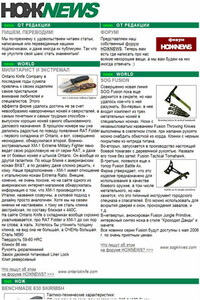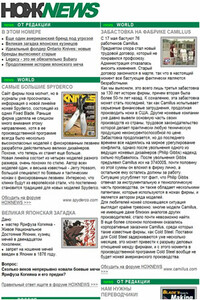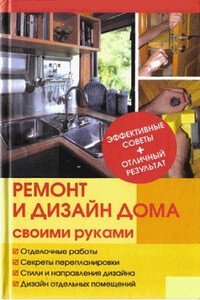Семь главных игр в истории человечества. Шашки, шахматы, го, нарды, скрабл, покер, бридж - страница 117
––. “I Faced Off Against the World’s Best Chess Player. You Will Totally Believe What Happened Next.” FiveThirtyEight, May 14, 2018.
Sadler, Matthew, and Natasha Regan. Game Changer: AlphaZero’s Groundbreaking Chess Strategies and the Promise of AI. New in Chess, 2019.
Shannon, Claude. “A Chess-Playing Machine.” Scientific American, February 1950.
––. “A Mathematical Theory of Communication.” Bell System Technical Journal 27, no. 3 (1948): 379–423.
––. “Programming a Computer for Playing Chess.” Philosophical Magazine 41, no. 314 (March 1950): 256–75.
Silver, David, Thomas Hubert, Julian Schrittwieser, Ioannis Antonoglou, Matthew Lai, Arthur Guez, Marc Lanctot, et al. “A General Reinforcement Learning Algorithm That Masters Chess, Shogi, and Go Through Self-Play.” Science 362, no. 6419 (December 7, 2018): 1140–44.
––. “Mastering Chess and Shogi by Self-Play with a General Reinforcement Learning Algorithm.” ArXiv: 1712.01815 [Cs], December 5, 2017.
Silver, Nate. The Signal and the Noise: Why So Many Predictions Fail – but Some Don’t. New York: Penguin Press, 2012.
Simon, Herbert A., and Allen Newell. “Heuristic Problem Solving: The Next Advance in Operations Research.” Operations Research 6, no. 1 (1958): 1–10.
Soni, Jimmy, and Rob Goodman. A Mind at Play: How Claude Shannon Invented the Information Age. New York: Simon & Schuster, 2017.
Standage, Tom. The Turk: The Life and Times of the Famous Eighteenth-Century Chess-Playing Machine. New York: Walker Books, 2002.
Thompson, K. “Computer Chess Strength.” In Advances in Computer Chess 3, edited by M. R. B. Clarke, 55–56. Pergamon Chess Series. Oxford: Pergamon Press, 1982.
Tomkins, Calvin. Duchamp: A Biography. New York: Henry Holt, 1996.
Turing, Alan M. “Computing Machinery and Intelligence.” Mind 59, no. 236 (October 1950): 433–60.
Wilkenfeld, Yoni. “Can Chess Survive Artificial Intelligence?” New Atlantis, Spring 2019.
Wilson, Robert A., and Frank Keil, eds. The MIT Encyclopedia of the Cognitive Sciences. Cambridge, Mass.: MIT Press, 1999.
AlQuraishi, Mohammed. “AlphaFold @ CASP13: ‘What Just Happened?’” Some Thoughts on a Mysterious Universe (blog), December 9, 2018.
Associated Press. “Human Players Stop Machine in ‘Go.’” Times-News (Idaho), November 26, 1992.
Bouzy, Bruno, and Tristan Cazenave. “Computer Go: An AI Oriented Survey.” Artificial Intelligence 132, no. 1 (2001): 39–103.
Chen, Xiangchuan, Daren Zhang, Xiaochu Zhang, Zhihao Li, Xiaomei Meng, Sheng He, and Xiaoping Hu. “A Functional MRI Study of High-Level Cognition II: The Game of Go.” Cognitive Brain Research 16, no. 1 (March 1, 2003): 32–37.
Coulom, Rémi. “Efficient Selectivity and Backup Operators in Monte-Carlo Tree Search.” In Computers and Games: 5th International Conference, edited by H. Jaap van den Herik, Paolo Ciancarini, and H. H. L. M. (Jeroen) Donkers, 72–83. Berlin: Springer, 2007.
DeepMind. “The Google DeepMind Challenge Match, March 2016.” https://deepmind.com/alphago-korea.
Fairbairn, John. “Go in China.” In Ancient Board Games in Perspective, edited by Irving L. Finkel, 133–37. Papers from the 1990 British Museum Colloquium. London: British Museum Press, 2007.
Good, I. J. “The Mystery of Go.” New Scientist, January 21, 1965.
Google DeepMind. Challenge Match, 8–15 March 2016. Game 1: “Dawn.” Commentary by Fan Hui Go. Analysis by Gu Li and Zhou Ruiyang. Translated by Lucas Baker, Thomas Hubert, and Thore Graepel.
Graham, Elyse. “Adventures in Fine Hall.” Princeton Alumni Weekly, January 10, 2018.
House, Patrick. “The Electronic Holy War.” New Yorker, March 25, 2014.
Hsu, Feng-hsiung. “Cracking Go.” IEEE Spectrum, October 1, 2007.
Huang, Dan. “How Much Did AlphaGo Zero Cost?” Dansplaining (blog), March 2018.
Huang, Shih-Chieh, and Martin Müller. “Investigating the Limits of Monte-Carlo Tree Search Methods in Computer Go.” In Computers and Games: 8th International Conference, edited by H. Jaap van den Herik, Hiroyuki Iida, and Aske Plaat, 39–48. Cham, Switzerland: Springer International, 2014.
Johnson, George. “To Test a Powerful Computer, Play an Ancient Game.”



